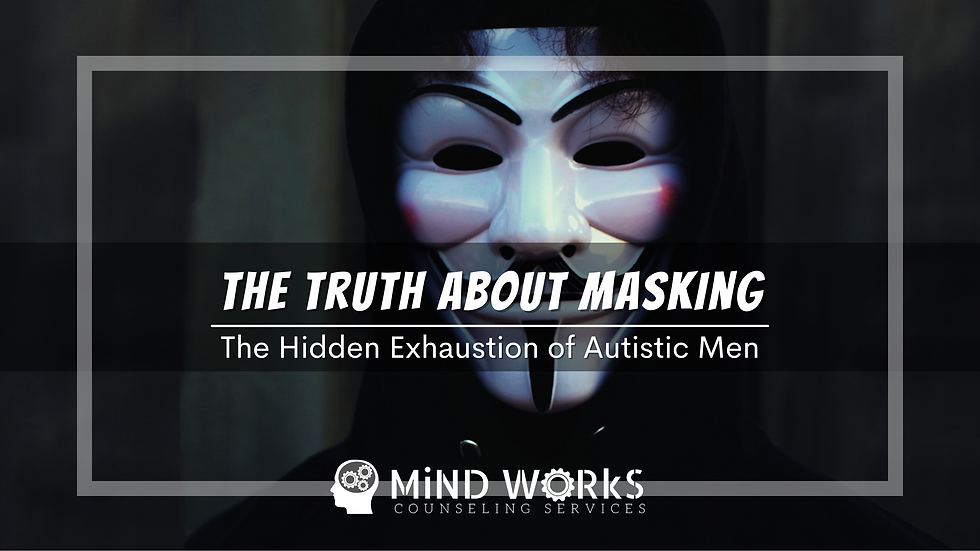Late Diagnosis and ASD: Handling and Autism Diagnosis Later in Life
- Cody Curbo, Med, LPC, LCDC

- Jun 8, 2022
- 2 min read
When I started working with individuals with ASD, I had many preconceived ideas about what the face of Autism looked like. Television and movies do little to express what the day-to-day life of someone with Autism is actually like. Luckily, a few shows and documentaries demonstrate why it's a spectrum and at least a glimpse of what trials and triumphs are possible.

One such problem I have been encountering since I started working with individuals with Autism is that many of them did not have a formal diagnosis at an early age and may still not have a diagnosis later in life. The conversation usually starts with going over a few struggles they may be having interacting with peers, isolation, never feeling understood, and then "So I have a question? Am I Autistic?"
Is a Diagnosis Necessary?
Now without going into the vast information required to give someone a formal diagnosis of any sort, much less Autism Spectrum Disorder, I find it essential to ask if it is vital to have the diagnosis. Sometimes it's out of curiosity, and sometimes they have watched something on TV and made them wonder, or a loved one mentions it. The reason for asking has far more to do with what they want to do with the diagnosis than having a label. I would say the many clients I have worked with want to know if they are autistic to explain why many aspects of their lives growing up were difficult and perhaps learn how to relate to the world differently once they know. My role starts as someone who can educate on the core characteristics of Autism and then moves to help set goals around what they would like to see differently in their lives. The most important thing I would say when learning about Autism is that a diagnosis does not mean less than. It just means the world looks a little different in your eyes.
What Will an Autism Diagnosis Do For You?
What do you want to do with the possible diagnosis of Autism Spectrum Disorder? That is entirely up to the individual. I recommend reading everything you possibly can about the subject. Autism awareness is getting to be a hot topic in the mainstream. Secondly, embrace that you may have some differences and that these could be a blessing, not a curse. Imagine if everyone saw the world the same way. How boring would that be? The third thing will be to ask for help if you need it. Counselors are trained to help with many of the struggles you may encounter, such as social anxiety, depression, and coping in general.
At Mind Works Counseling in Lubbock, Texas, we specialize in providing counseling to people with Autism , and we are here to help you find your voice in times of need. Please feel free to give us a call and schedule an appointment.
Learn more about the Autism Counseling services we offer.
Contact us to schedule an appointment or to let us answer any questions you may have.
.jpg)



Comments